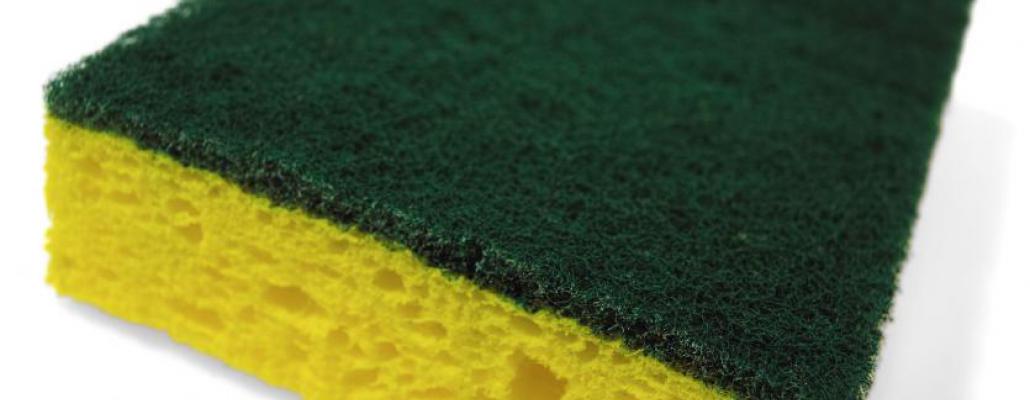
07 March 2018
A lot of people think that cleanliness is next to godliness. We think so too. But did you know that kitchen sponges may harbor billions of bacteria?
In 2006, Dr. Phillip Tierno, Director of New York University’s Microbiology Department and author of The Secret Life of Germs, was a guest on Oprah. During the segment, “Is Your House Making You Sick,” he discussed dirty kitchen sponges. He stated that sponges and dishrags can hold literally billions of bacteria and declared that they should be kept no longer than one month.
Replacing your sponge monthly is highly recommended by experts around the world.
Here are a few steps to help retain a clean sponge.
1. Keep your sponge in a dry place when not in use. Rinse it out well under hot water, then wring it out tightly when you're done using it. Store it in a spot that is dry and away from moisture -- not in the kitchen sink.
2. Wipe down places and items that have been exposed to raw meat, fish or eggs with a paper towel before using the sponge on them. This will help to minimize the bacteria from the raw meat getting into the sponge.
3. Disinfect your sponge every two to three days, after excessive use or after using it on surfaces and items where bacteria may be located. Soak the sponge with water and put it in a microwave-safe dish. Pop it in the microwave for one minute to disinfect and kill bacteria.
4. Rinse excess food and grime off dishes before scrubbing them with a sponge. This will help to keep the sponge clean of food that gets lodged inside it.
5. Discard your sponge when it begins to crumble, fray, tear or is heavily soiled. Even through frequent disinfecting and proper usage, your sponge will not last forever.